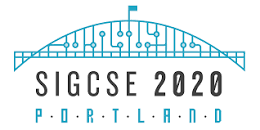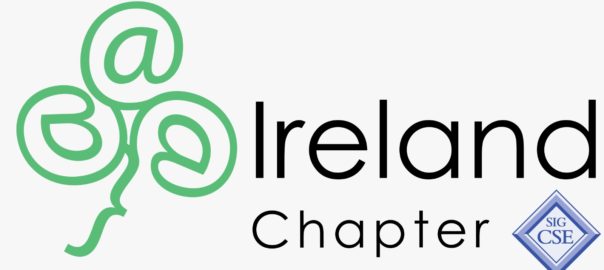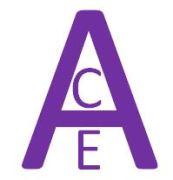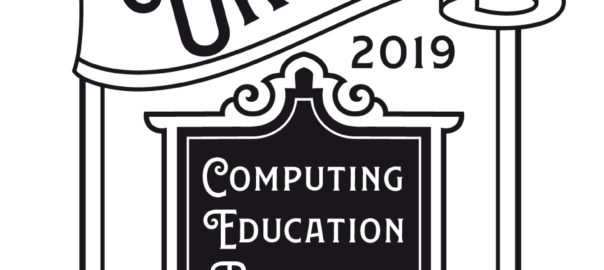via the conference chairs:
The Australasian Computing Education Conference (ACE) is a high-quality international conference on research, teaching, and innovation in computing education. ACE 2020 will be held in cooperation with ACM SIGCSE. In additional to publishing research from leading computing education researchers, the ACE community is very welcoming and supportive of researchers who are new to computing education research, and practitioners who wish to discuss and develop good computing education practice.
Topics of interest for the conference include, but are not limited to:
- the use of technology in computing education;
- course content;
- curriculum structure;
- methods of assessment;
- pedagogy and learning theories;
- mobile, flexible, online learning, and
- evaluations of alternative approaches.
ACE invites submission of research papers, practitioner papers, and workshops that foster collaborative research.
The Program Committee will select the papers to appear based on their potential to enhance learning outcomes in computing courses. Both research papers and practitioner papers must be between 5 and 10 pages long in total. Papers that are accepted and presented will appear in the ACE proceedings and will be published in the ACM Digital Library.
IMPORTANT DATES
All dates refer to 23:59, anywhere on earth on that day.
Sunday, 13 October 2019: Research Papers, Practitioner Papers, Workshop submissions due.
Sunday, 10 November 2019: Author Notifications
Friday, 15 November 2019: CORE Student Travel Award Applications (TBC)
Sunday, 24 November 2019: Camera-ready Copy
Friday, 20 December 2019: Early-bird Registration
3rd – 7th February 2020: Conference
RESEARCH PAPERS
Papers on research and innovations may be in the context of formal courses or self-directed learning; they may involve, for example, introductory programming, service courses, capstone courses, specialist undergraduate or postgraduate topics, or industry-related short courses. We welcome submissions directed at issues of current and local importance, as well as topics of international interest. Such topics may include the transition from school to university, articulation between vocational and university education, quality management in teaching, teaching people from other cultures, globalisation, attracting and retaining female students, online, mobile and blended learning.
PRACTITIONER PAPERS
In addition to research papers, ACE provides the opportunity for teachers to demonstrate new educational tools, and to share interesting teaching resources, assignments, and techniques that may be of broad interest to the community. We encourage the submission of papers that present interesting ways to teach challenging concepts, engaging activities that promote student learning, and compelling assignments.
COLLABORATIVE RESEARCH WORKSHOPS
Workshops at ACE are focused on establishing new collaborative research projects and broadening existing projects. This is an ideal opportunity to expand an existing project to a multi-institutional study by engaging researchers from a variety of institutions, or to establish projects with other like-minded researchers.
We welcome submissions from researchers who intend to lead collaborative research activities with the expectation that participants in the workshops would have the opportunity to join the research project and potentially produce future collaborative research outputs. Proposals for workshops should be 1-2 pages long, and should not be annonymised. The submission should clearly outline the research project, and how the workshop will broaden collaboration in the CS Education community.
Workshop proposals do not have to use standard ACM templates – text should simply be formatted to ensure it is readable for the program chairs. Workshops that are accepted will not appear in the proceedings, but it is anticipated that workshops will lead to future publications.
REVIEW PROCESS
All research and practitioner papers will be fully refereed using a double-blind reviewing process. Workshop proposals will be reviewed by the ACE chairs and will not be blind-reviewed.
Conflict of Interest
Reviewers are expected to declare a conflict of interest for any paper that they have a personal involvement with (e.g., if they have collected data, provided feedback on a draft, or are formally listed as a co-author). A reviewer will not be allocated to review a paper for which they have declared a conflict of interest, will not know who has been allocated to review that paper, and will not see the reviews until notification.
The chairs of ACE are permitted to submit papers. In this case, the submitting chair declares a conflict of interest and the co-chair takes responsibility for managing the review process for that paper. The submitting chair will never see who reviews the paper, and will not see the reviews until notification. All reviews and decision-making on the paper are made by the co-chair who is not involved in the paper. ACE will not accept papers co-authored by both chairs, as that would render the process unworkable.
MORE INFORMATION
ACE is held in conjunction with Australasian Computer Science Week (ACSW). ACSW arranges the venues and registrations for all ACSW conferences. Additionally, ACSW accepts Poster submissions for work in progress and offers several workshops that may be of interest. For information refer to the ACSW website:
http://www.acsw.org.au/
For more information about ACE, including formatting requirements and submission details, refer to the ACE website:
https://aceconference.wordpress.com/
To contact the chairs, please use the conference EasyChair email address shown below, which will be directed to the chairs.
[email protected]
CONFERENCE CHAIRS
Andrew Luxton-Reilly, University of Auckland, New Zealand
Claudia Szabo, The University of Adelaide, Australia
Like this:
Like Loading...





